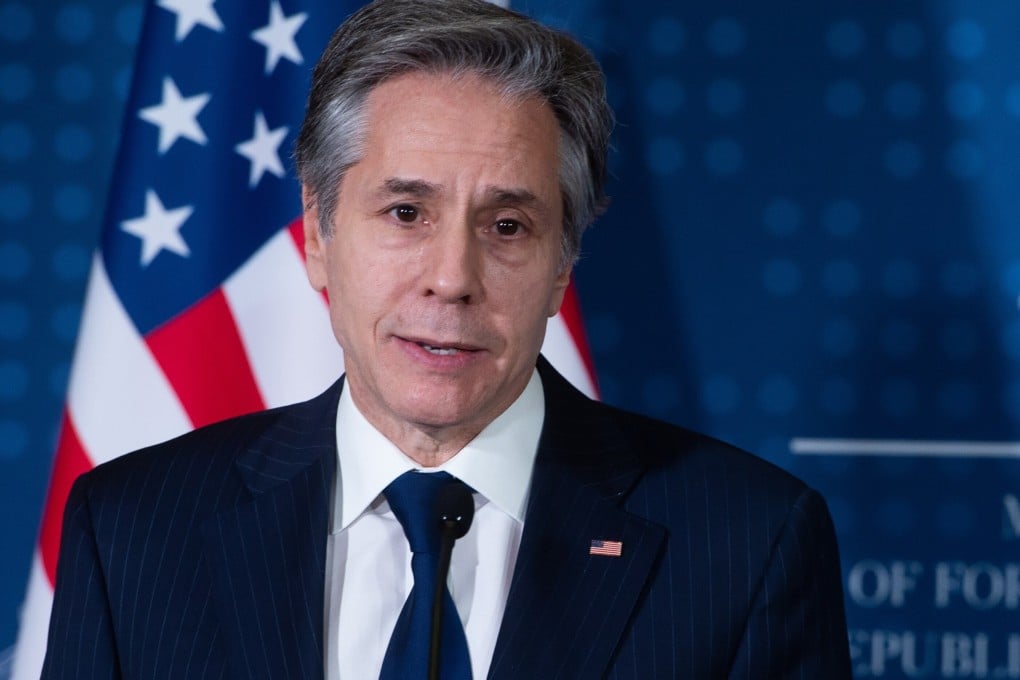Advertisement
‘Actions speak louder than words’: US tells China to condemn Russia’s invasion of Ukraine
- US secretary of state says Beijing’s failure to speak out against Moscow means more than its line on upholding international order
- Europe urges China to appeal to Russia for a ceasefire but stops short of criticising Beijing
Reading Time:3 minutes
Why you can trust SCMP
72

Finbarr Berminghamin Brussels
The US has warned China that “actions speak louder than words”, after Beijing continued to offer tacit support to Russia while also showing willingness to help broker peace in Ukraine.
In Vilnius on Monday, US Secretary of State Antony Blinken equated China’s support for Russia with its alleged economic coercion of Lithuania after a row over Taiwan.
“Beijing talks a lot about the importance of upholding the international order, stability, and respecting sovereignty,” Blinken said.
Advertisement
“But from its coercion of Vilnius, to its failure thus far to condemn Moscow’s flagrant violation of the sovereignty and territorial integrity of Ukraine today and in 2014, Beijing’s actions are speaking much louder than its words.”
The assessment comes amid increased international scrutiny of China’s position on the worsening crisis in Ukraine.
Advertisement
Advertisement
Select Voice
Select Speed
1.00x
